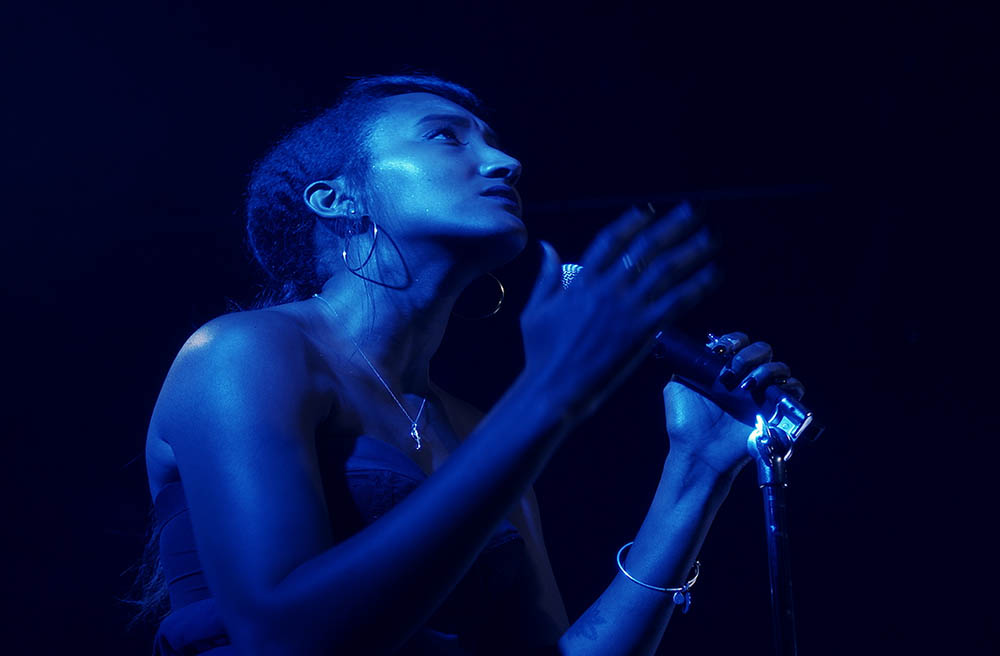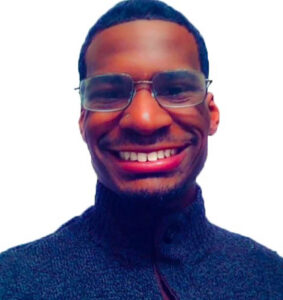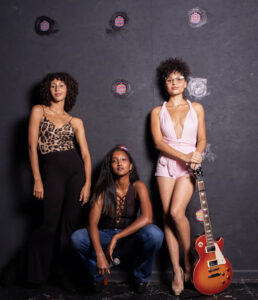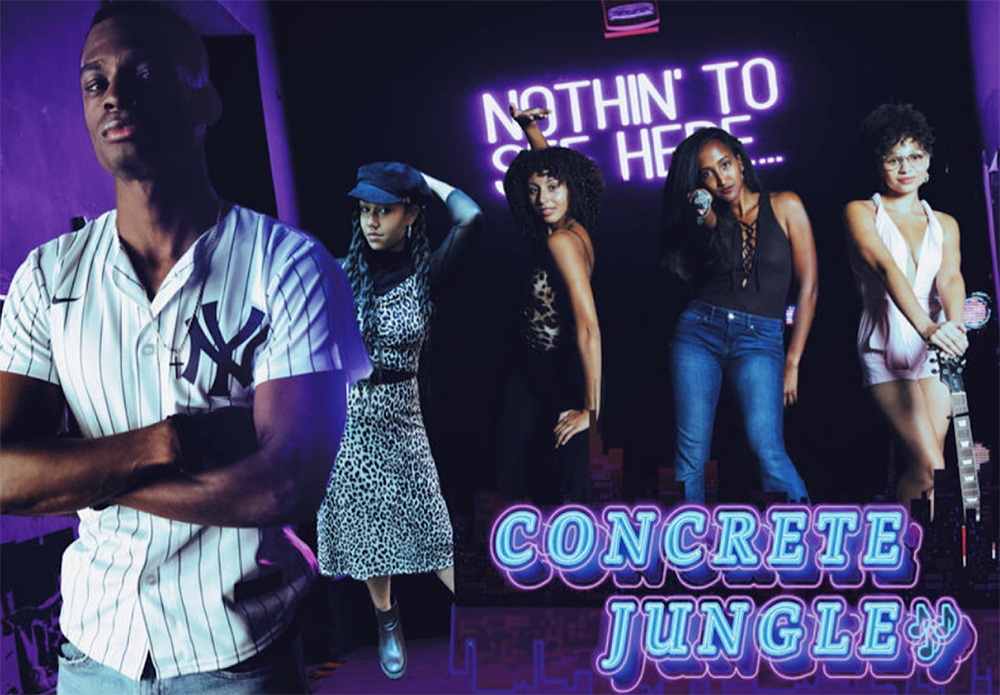I recently had the pleasure of interviewing De’Angelo Young, a talented filmmaker and writer now based in New York. His most recent work is “Concrete Jungle,” a musical TV series that focuses on struggling Black artists trying to leave their mark in the music industry. Just like the characters in his series, Young too has undergone a trial by fire as a new and independent artist, especially when it comes to learning the ropes of filmmaking and production.
Young was gracious enough to talk to me about his filmmaking journey, about striving for authentic portrayals of female Black characters on-screen, and a lot more in this enlightening interview.
Vidal Dcosta for The Movie Buff: What or who inspired you to create the series ‘Concrete Jungle?’
De’Angelo Young: I was inspired to write “Concrete Jungle” after moving to New York almost two years ago and meeting so many compelling and talented artists. I wanted to give these artists, as well as myself, a platform to tell their story. The characters and stories came from experiences I had while trying to make it in this tough city. I was never accepted in my own hometown, but this city embraced me and my talent so this series is an ode to New York City.
Could you elaborate a bit on your filmmaking journey? Who are your major influences in the field of filmmaking, how did you start out and what kinds of stories do you look forward to telling as a filmmaker in the near future?

De’Angelo Young: I began writing poetry and acting in school plays. I would tell my family I wanted to be an actor, but most of them shot it down; I come from a very small town in Georgia of about 5,000 people…something like that was unheard of. But after enrolling at Georgia Southern University I met two talented filmmakers [who are still]two of my best friends, Christophe Chin and Scott Sullivan.
The three of us formed a bond and began writing and producing web series, short films, and commercials in college. Through our friendship I discovered my gift for filmmaking. Tyler Perry is one of my major influences because of his versatility as an artist. I hope to tell positive and uplifting stories to my audiences.
Did other musicals (or other shows, movies, etc.) whilst creating this show? What sets ‘Concrete Jungle’ apart from other works in the same genre?
De’Angelo Young: I wrote “Concrete Jungle” because I have a deep love for music but I don’t have any musical talents. My biggest inspiration was “Purple Rain” and “Dream Girls.” They used music to tell stories about the Black experience. So I became motivated to find uniquely talented artists and create my own musical.
Did you encounter any hardships during filming? What would you say were the easiest, most difficult, or even most emotional moments to film? How did you overcome any of the issues that popped up during filming?
De’Angelo Young: Although film and TV seems glamorous to people on the outside, the truth is it is anything but! I personally became homeless while making the “Concrete Jungle” series. In the middle of production I went over budget and ran out of money. Instead of shutting the production down, I used money from my day job to pay cast and crew and other production expenses instead of paying rent. Many nights I slept in bus stations, park benches, or slept rough and ate 99¢ pizza for a month in order to complete the project. I was determined not to let down my cast and crew. Even though homelessness is a bad experience, these hardships are what made me a better filmmaker as well as a better person

The easiest part of making the series was directing my main actresses. They were so naturally gifted that working with them was easy. I would give them ideas and they would take them and do things I would have not have thought of. The hardest part was being a main actor, as well as having to direct the whole production. Having to coordinate the production, then immediately jump back into character and remember my lines at the drop of a hat was extremely difficult and felt like I was learning to fly a plane.
And the most emotional part was the last performance scene of the series, seeing all these artists perform at the finale. It was emotional because all of these artists were so so talented and I would miss the connection I made with them throughout the production. Also the fact that I saw my dream come true against all odds was an amazing feeling. I honestly cried when it was over.
I also noticed some fresh faces in your series. Did the cast have any feedback with regards to the script or with their characterisation?
De’Angelo Young: My main actors Meghan Irving, Idania Quezada, Sydney-Alexis Hall, Kimiko Jackson-Valle, and Autumn Jones are all phenomenal women who inspired me and helped me cultivate these compelling characters and tell the coming of age stories about women. Because I’m a guy and writing from the female gaze, at times it felt inauthentic; but they believed in me and gave great feedback from a female perspective.
Looking back, I would say my faith in God is the main reason I made it through production through all of the issues that occurred.”de’angelo young
The connection I made with them is what helped me grow as a writer and director. It is through acting and storytelling that we understand our own selves and the human experience. Looking back, I would say my faith in God is the main reason I made it through production through all of the issues that occurred.
It filled me with hope to see an all-Black cast in this series; it even reminded me of the show ‘Pose’ in a lot of ways. It’s encouraging there is finally a bigger spotlight on the Black community and their issues, but would love to know your thoughts. Do you think there is enough being done to highlight Black issues in the industry? Do you have any personal experience regarding to how you’ve been treated as a Black artist you’d like to share?

De’Angelo Young: Over the past several years we have seen more and more African American storytellers emerge and I think that the world is starting to realize that African Americans are not just pawns in a chess game…we aren’t just slaves and street thugs, we have some really really amazing stories to tell. I’ve seen a lot of movements to highlight the issue with little results. The only way the world will learn all about the true Black experience is if we shatter the glass ceiling and tell our own stories. [We need] to create our own tables from which we can promote, hire, and uplift each other
Has work come to a standstill for you as a filmmaker during the pandemic? Are you currently working on new forthcoming projects that you could care to share with us?
“Concrete Jungle” Season 1 required so much work that I wasn’t able to get involved in any other projects. I have several short film projects in the works, but “Concrete Jungle” is the most important. I am writing a second season of “Concrete Jungle” currently.

Lastly, do you have any words of inspiration, especially for aspiring filmmakers or actors from the Black community?
De’Angelo Young: Although I am still early in my career as a filmmaker, I would urge young up and coming actors and filmmakers of color to be relentless in the pursuit of their dream. Your dream is much bigger that you. Your stories have the power to change the lives of other people, now and in the future. Even though I suffered through a stint of homelessness I remained relentless; I just wanted to tell my story and give other artists of color opportunities. My favorite author, Paulo Coelho, stated, “when you want something all the world conspires to help you achieve it.”
You can watch “Concrete Jungle” Season 1 on Amazon Prime now. You can also check on the show on its official website at https://www.concretejungletvserie.com.

